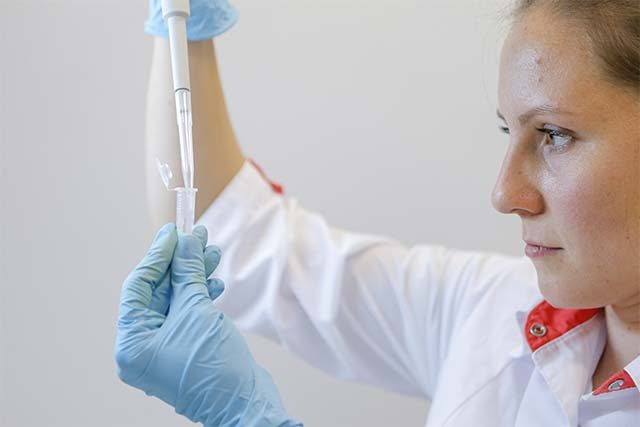
A Filipino physician-scientist recently sought for an update on the development of the Ebola vaccine of Russia following reports of Russian president’s claim to have completed the first COVID-19 vaccine in the world.
Last week, Russian President Vladimir Putin announced that the Gamaleya Research Institute in Moscow, Russia approved the world’s first vaccine to prevent the deadly virus. Putin said that this vaccine is called Sputnik V.
President Rodrigo Duterte expressed optimism to purchase this vaccine during his previous national addresses. Duterte hoped that the country would be “COVID-free” by December.
However, scientists and medical experts raised alarms that it did not complete the final stage testing of vaccine development prior to approval.
READ: ‘Keep hopes in check’: Filipinos reminded of hastened approval of Russia’s COVID-19 vaccine
Critics also opposed the national government’s decision to launch the clinical trials in the Philippines, in perception that Filipinos would serve as “guinea pigs” for the testing.
Filipino physician-scientist based in Zurich, Switzerland Melvin Sanicas, meanwhile, recalled Russia’s previous claim of developing the world’s first vaccine against Ebola, a highly contagious disease that caused an epidemic in West Africa for two years.
“Hello everyone, any idea what happened to this Ebola vaccine?” Sanicas asked on Twitter, just hours after Russia’s announcement.
#JustAsking Hello everyone, any idea what happened to this #Ebola #vaccine? Reported by @guardian 14 January 2016. https://t.co/8eEllHgyva pic.twitter.com/sEPlFoiX41
— Dr. Melvin Sanicas 🩺🔬 (@Vaccinologist) August 11, 2020
In his tweet, Sanicas attached a link to a January 2016 article of The Guardian wherein Putin asserted that Russia developed the first Ebola vaccine.
“We have good news. We have registered a drug against Ebola, which after the corresponding tests has been shown to be highly effective, more effective than the drugs used worldwide up to now,” Putin was quoted by a Russian-based RIA Novosti news agency as saying.
Russian health minister Veronika Skvortsova likewise added that their developed vaccine was: “unique and has no equivalents in the world.”
However, neither Putin nor the health minister did not provide any additional details about this supposed breakthrough.
During that time, the World Health Organization has yet to authorize any approved vaccine or treatment against the highly contagious Ebola virus disease or EVD.
The rising death toll in West Africa placed several pharmaceutical companies in a race to develop a vaccine, which is the same situation with the current pandemic.
What happened to Russia’s Ebola vaccine?
The EVD first appeared in 1976 in simultaneous outbreaks in South Sudan. However, it spread into an epidemic across Africa from 2014 to 2016, which eventually killed more than 11,000 people.
In 2015, a vaccine under investigation called rVSV-ZEBOV or commercially known as the Ebola Zaire vaccine was declared highly effective after a few months of trials in the country of Guinea, therefore making it the first proven solution to control the Ebola outbreaks.
However, its developer is not from Russia. It was developed by an American pharmaceutical company called Merck, Sharp & Dohme.
The US Food and Drug Administration approved this vaccine on Dec. 19, 2020. It was also the first US FDA-approved Ebola vaccine.
It turned out that following Putin’s claim on Ebola vaccine, Russia’s vaccines were still being tested in clinical trials and field tests in 2016.
Later that year, Skvortsova announced that Russia has allocated funds to carry out the tests to Guinea.
“Russia has allocated funding to carry out these field tests, as well as the necessary funding for the vaccination of the first 2 000 citizens of the Republic of Guinea,” she said.
In 2017, another vaccine from Russia called GamEvac Combi was also still under trial tests among the country’s residents.
It was only in 2019 that the Russian health care minister declared 100% effectiveness of a new vaccine in helping prevent the hemorrhagic fever among primates.
In line with the new Sputnik V, which Putin himself also announced to the media, the WHO urged countries to improve their response against COVID-19 instead of hoping for the vaccine.
“Even if they can really manage and develop a safe and effective vaccine, the production capacity would not really meet the demand coming from the entire world,” Takeshi Kasai, WHO Western Pacific regional director said.
“I think what is important is that we continue to improve our response and not just hope for the vaccine,” he added.









